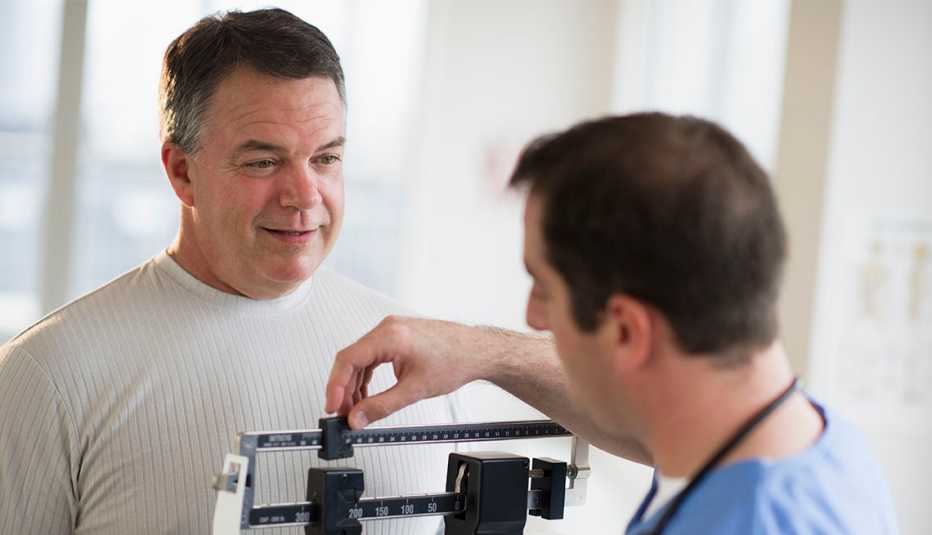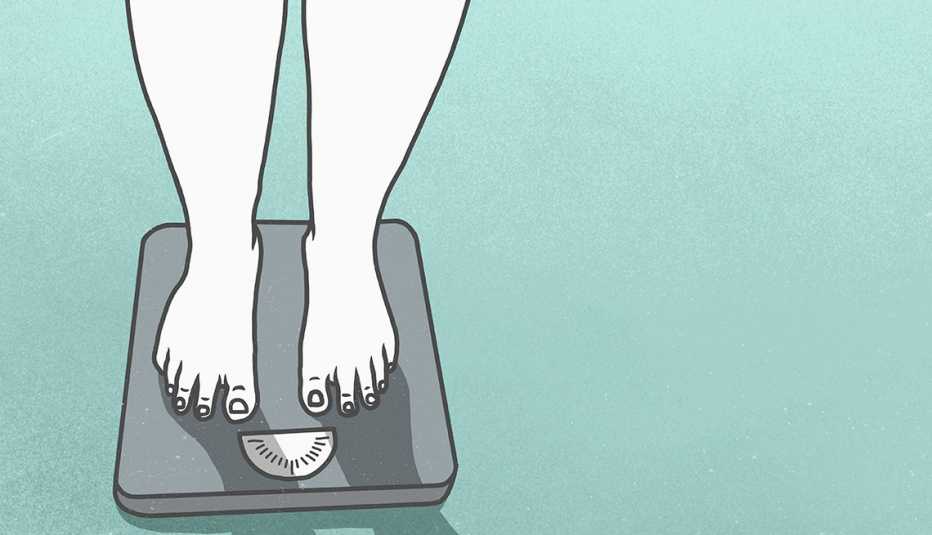Staying Fit
It's not your imagination. That band of fat currently making it harder to zip up your favorite jeans is very likely to expand as you age, for men and women alike.
But while no one relishes a spare tire, there's something especially noxious about this particular type of waistline weight gain. Turns out, belly fat is not like other fat, and experts say that what should really concern you is its proximity to the major organs in your midsection.


AARP Membership— $12 for your first year when you sign up for Automatic Renewal
Get instant access to members-only products and hundreds of discounts, a free second membership, and a subscription to AARP the Magazine.
Located in the abdominal cavity, this “visceral” fat — as opposed to the body's subcutaneous fat, which you can pinch between your fingers — is linked to a slew of health problems.
"Visceral fat coats some of your internal organs and hangs down like an apron from your large intestine,” says gastroenterologist Samuel Klein, chief of the Division of Geriatrics and Nutritional Science at Washington University School of Medicine in St. Louis. “It's associated with an increased risk of metabolic diseases, including insulin resistance, high blood pressure, diabetes, cardiovascular disease and fatty liver disease.”
Although researchers first studied visceral fat and metabolic disturbances back in the 1950s, no one paid much attention to the work until the obesity epidemic started gaining speed. Now, studies are multiplying that show that the more visceral fat you have, the greater your risk for things like breast and colorectal cancers.
People with the greatest amount of this deep abdominal fat are nearly three times as likely to develop dementia as those with the least of it, according to a study by the Kaiser Permanente Division of Research, which followed study participants for more than three decades.
How abdominal fat harms
Besides wrecking your waistline, the problem with abdominal fat is that its cells pump out chemicals that promote disease. “Fat is not just a depot to store energy,” Klein says. “It's a very active endocrine organ that produces hormones, inflammatory proteins and fatty acids and secretes them into the bloodstream."


































































